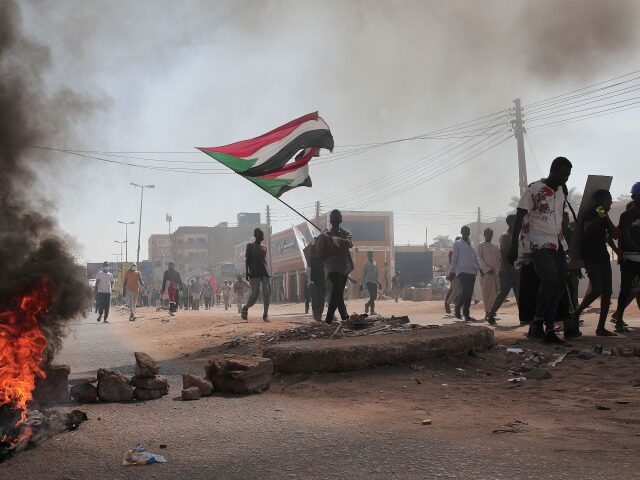The World Health Organization (W.H.O.) on Tuesday warned that fighting in Sudan has created a “high risk of biological hazard” because one of the warring factions has seized control of a laboratory that houses measles, polio, cholera, and other pathogens.
W.H.O. envoy Nima Saeed Abid did not specify which side in the Sudanese civil war took control of the National Public Health Laboratory in Khartoum. He warned the situation was “extremely, extremely dangerous,” especially since the occupying force ejected all the trained laboratory staff.
“This is the main concern: no accessibility to the lab technicians to go to the lab and safely contain the biological material and substances available,” he told a press conference in Geneva via a video link from Sudan.
“In addition to chemical hazards, bio-risk hazards are also very high due to lack of functioning generators,” he said.
Abid was also concerned about much-needed blood bags stored at the facility “spoiling due to the lack of power.”
W.H.O. confirmed that at least 14 attacks have been conducted on healthcare facilities since the war broke out, resulting in the capture or destruction of valuable medical supplies.
“There are disturbing reports of some health facilities being looted and others being used for military purposes. It is also reported that some hospitals are already closed, or on the brink of closure, due to attacks, and a lack of medical personnel and medical supplies,” W.H.O. Director-General Tedros Adhanom Ghebreyesus said in his briefing on the “deeply concerning” situation in Sudan last week.
The Sudanese National Public Health Laboratory was established with cooperation from W.H.O., the World Food Program (WFP), the World Bank, and various partner nations. It keeps an inventory of pathogens for vaccine research and production. Since the beginning of the Wuhan coronavirus pandemic, the laboratory has taken a lead role in testing for Wuhan coronavirus infections, including screening new arrivals at the international airport in Khartoum.
The war in Sudan began two weeks ago, when a long-simmering rivalry between the two leaders of the 2021 coup, army commander Abdel Fattah al-Burhan and his deputy Mohamed Hamdan Dagalo, erupted into violence.
Burhan leads the Sudanese Armed Forces (SAF), while Dagalo — commonly known by his Arabic nickname Hemedti (“Little Mohammed”) — commands a paramilitary army called the Rapid Support Forces (RSF). The RSF grew out of the infamous Janjaweed militia, whose brutal efforts to secure power for dictator Omar Hassan al-Bashir in the 2000s were denounced as “genocide” by the U.S. government.
Both the SAF and the RSF play rough and have comparable manpower, weaponry, and resources. The feud between Burhan and Dagalo has been fought with military weapons in urban areas, inflicting tremendous destruction. As of Tuesday, at least 458 deaths and 4,000 injuries had been reported. It is not difficult to see why W.H.O. would be concerned about either party seizing control of a laboratory stocked with dangerous diseases and kicking out the technicians who know how to handle them.
On Monday, the SAF and RSF agreed to a three-day ceasefire brokered by the United States, hopefully giving foreigners enough time to escape Sudan. Both sides immediately accused each other of violating the ceasefire agreement, and eyewitnesses reported gunfire and explosions in parts of Khartoum on Tuesday.

COMMENTS
Please let us know if you're having issues with commenting.